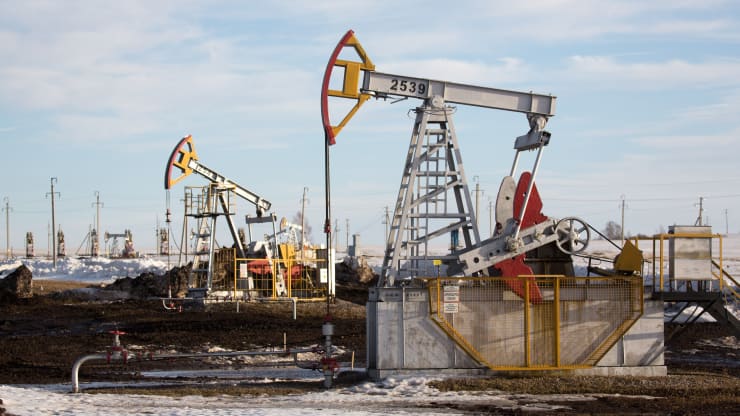Mobil Producing Nigeria Unlimited, a unit of ExxonMobil, will resume shipment of Qua Iboe crude, Nigeria’s largest grade of crude oil in October, three months after the company had declared force majeure on the exports of the grade.
This is coming as oil prices slumped three per cent Tuesday following another gloomy prediction by the International Energy Agency (IEA) on demand growth that suggested that oversupply in the oil market might persist for longer than anticipated.
ExxonMobil had declared the force majeure after it observed a leak caused by what it described as a “system anomaly” during a routine check of its loading facility on July 14, this year.
The cause of the leak was not clear, but the force majeure came just days after a militant group, the Niger Delta Avengers (NDA), claimed to have bombed the company’s 48-inch Qua Iboe crude oil export pipeline on July 11.
But 24 hours after the claim by the militants, the company’s spokesperson, Todd Spitler, debunked the claim, saying “there was no attack on our facilities.”
However, citing industry sources, Reuters reported that the company is offering an October-loading cargo of Qua Iboe crude oil, the first offer since the company declared the force majeure.
It was not clear if the pipeline had been repaired, or if the company expected it to be back on stream in time to load crude in October.
But the cargo is offered for October 8-16 loading at a premium of $1.80 per barrel to dated Brent.
A spokesman for Exxon said the force majeure remained in effect but did not give a timeframe on the resumption of operations.
While ExxonMobil said at the time it declared force majeure that the export terminal was operating, traders said the company did not release a revised loading schedule for the crude exports.
The last ship to load crude at the Qua Iboe terminal was the Ottoman Nobility on July 9.
One of the three other ships scheduled to load the crude had been near the terminal since July 12.
A vessel loads one million barrel of the grade every three to four days, and exports of 250,000 barrels per day aboard eight vessels were scheduled for July.
Before it declared a ceasefire recently, the Avengers had warned that if the company moved forward with repairs “something big…will happen,” and threatened to attack the company’s workers, instead of blowing up its facilities.
Shell-operated Forcados crude oil exports were halted since the Avengers attacked its subsea pipeline in February.
In a related development, oil prices fell tuesday on concerns over increased drilling in the United States and as investors took profits after oil prices rose close to one per cent in the previous session.
While the Brent crude was down $1, or 2 per cent, at $47.32 a barrel, the US West Texas Intermediate crude fell $1.25, or 2.7 per cent, to $45.04.
The IEA, energy adviser to over 26 industrialised countries, said a sharp slowdown in global oil demand growth, coupled with ballooning inventories and rising supply, means the crude market would be oversupplied at least through the first six months of 2017.
IEA’s gloomy forecast came a day after OPEC also predicted oversupply in the oil market in 2017.
IEA’s prediction contrasts with the agency’s last forecast a month ago for supply and demand to be broadly in balance over the rest of this year and for inventories to fall swiftly.
The IEA’s latest comments follow a surprisingly OPEC’s bearish outlook published in the cartel’s monthly Oil Market Report (OMR) on Monday.
Oil traders were quoted as saying that the price falls were an indication that increasing oil drilling activity in the United States was still a concern.


 Naira4 weeks ago
Naira4 weeks ago
 Naira4 weeks ago
Naira4 weeks ago
 Travel4 weeks ago
Travel4 weeks ago
 Naira3 weeks ago
Naira3 weeks ago
 Jobs4 weeks ago
Jobs4 weeks ago
 Naira4 weeks ago
Naira4 weeks ago
 Investment4 weeks ago
Investment4 weeks ago
 Travel4 weeks ago
Travel4 weeks ago



























